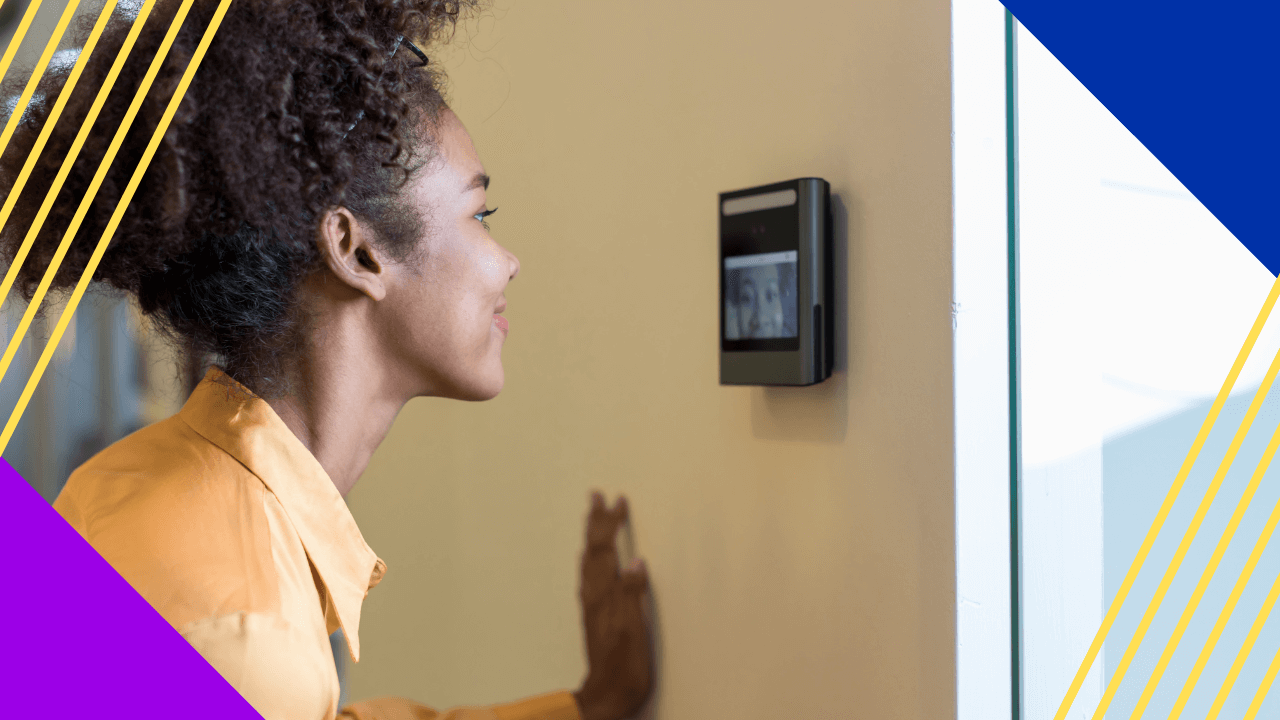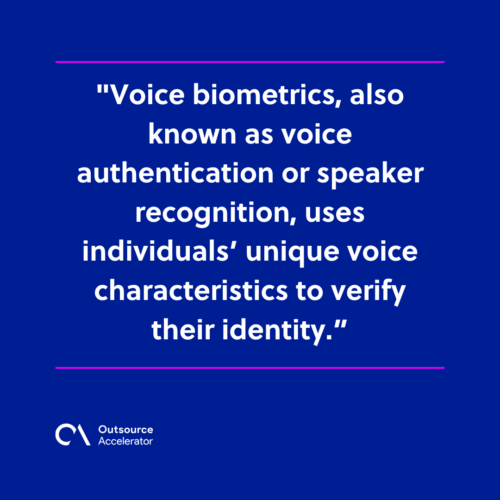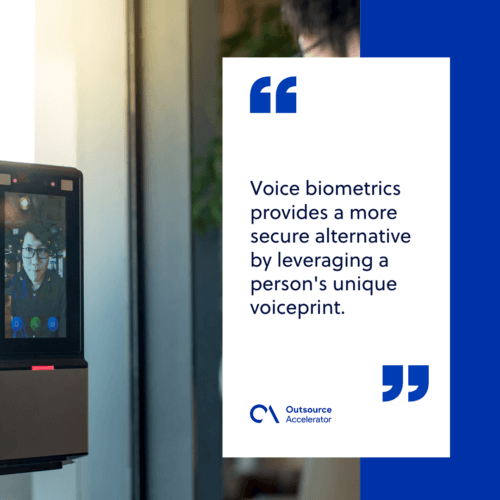Should businesses use voice biometrics in 2024?

Automation and artificial intelligence (AI) have reached new heights, transforming the way businesses work.
For one, they have become helpful tools in terms of gathering and storing information from an individual. From here, AI understands and learns the nuances of humans, making it easier to create their digital identity.
Voice biometrics is a valuable result of these advancements. Today, organizations use it as an additional layer of security for every transaction made by their clients.
Acquire BPO, a premier service provider, gives an insight into using voice biometrics in 2024.
What is voice biometrics?
Voice biometrics, also known as voice authentication or speaker recognition, uses individuals’ unique voice characteristics to verify their identity.
It analyzes various voice patterns, such as pitch, tone, and speech cadence, to create a unique voiceprint for each person. This serves as a customer’s digital representation for each transaction, much like a fingerprint or DNA sample.

How voice biometrics works
Voice biometrics technology works by capturing a sample of an individual’s voice through specialized software.
At times, various sample files are gathered and merged to ensure the accuracy of the voice template. Once merged, the system matches the voice template to its user and will be used moving forward for identification.
Industries using voice biometrics
Voice biometrics has found applications in a wide range of industries, such as the following:
Banking and finance industry
Voice biometrics provides a seamless and secure way for customers to authenticate their identities when transacting through the phone. It replaces traditional methods, such as PINs and passwords, that are prone to fraud.
By using their voice as a unique identifier, customers can conveniently access their accounts, authorize transactions, and conduct secure banking operations.
Healthcare industry
Voice biometrics has also made significant strides in the healthcare industry.
Medical professionals can use voice biometrics to securely access patient records without going through volumes of files or secured electronic medical records (EMRs).
Additionally, this technology enables healthcare providers to verify patients’ identities accurately during telemedicine consultations.
Contact centers and customer service
Customer service is a crucial aspect of any business, and voice biometrics plays a vital role in enhancing it.
By implementing voice biometrics in contact centers, customer service representatives can quickly verify a caller’s identity. It reduces the need for lengthy authentication processes and minimizes the risk of fraud.
On the other hand, voice biometrics can be used for personalization, tailoring approaches for de-escalation and upselling.
Advantages of using voice biometrics in 2024
As we move into 2024, the advantages of adopting voice biometrics become even more pronounced.
Below are some of these benefits:
Verify digital identity
Voice biometrics is mainly used to verify a user’s identity when transacting with a company.
Traditional methods of identity verification, such as passwords or PINs, are increasingly vulnerable to cybersecurity issues. Common password vulnerabilities even heighten these risks.
Voice biometrics provides a more secure alternative by leveraging a person’s unique voiceprint.

Shorten call handling time
Voice biometrics can significantly streamline customer interactions.
Voiceprints for identification let call centers eliminate the need for time-consuming verification processes, reducing call handling time and improving overall efficiency.
This means quicker resolutions for customers and more seamless customer experiences.
Personalize interactions
One of the key advantages of voice biometrics is its ability to personalize interactions.
By recognizing a customer’s voice, businesses can tailor their services to individual preferences, creating a more personalized and engaging experience.
Accessibility
Traditional authentication methods often pose challenges for those with limited mobility or visual impairments.
Voice biometrics can address accessibility concerns for individuals with disabilities. It helps businesses ensure that people of all abilities can securely access their services, fostering inclusivity and equal opportunities.
Implementing voice biometrics in your operations
Voice biometrics is a powerful tool that businesses should consider adopting in 2024. Its applications span across various industries and offer numerous advantages, from enhanced security to personalized interactions.
To implement voice biometrics in your business operations, it is essential to partner with a trusted technology provider with expertise in this technology.
Acquire BPO is a leading provider of innovative business process outsourcing solutions, including voice biometrics technology.
Its comprehensive solutions can help firms seamlessly integrate voice biometrics into their operations, ensuring maximum security and efficiency.
Visit Acquire BPO’s website at acquirebpo.com to learn how it can help you implement voice biometrics in your operations.







 Independent
Independent




